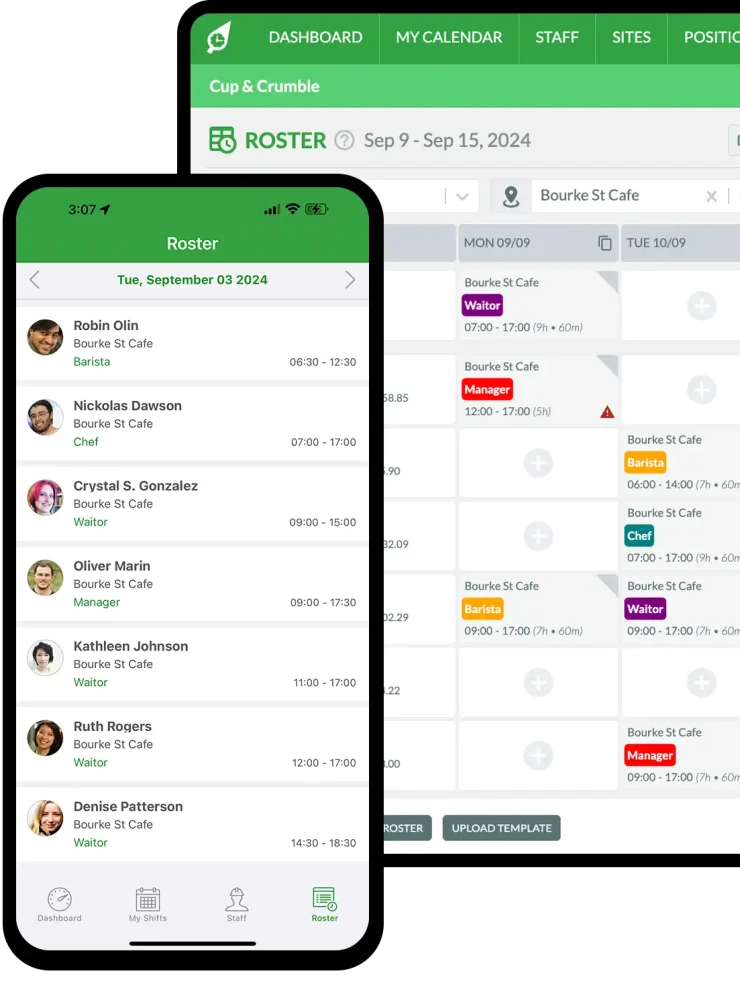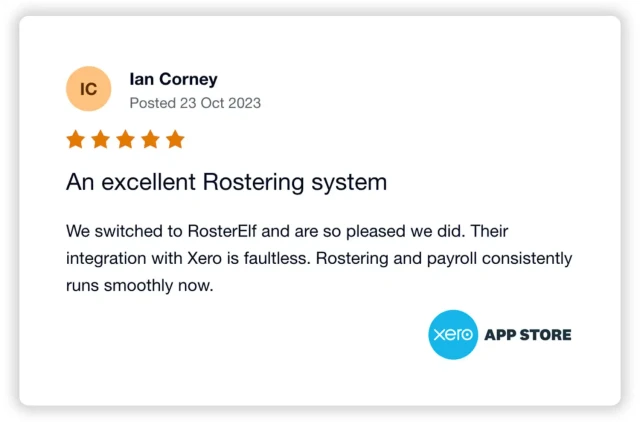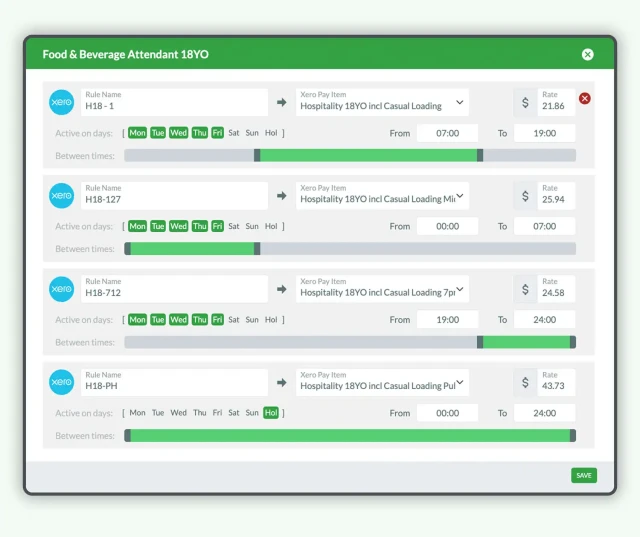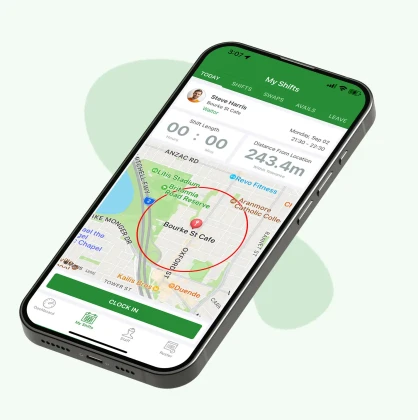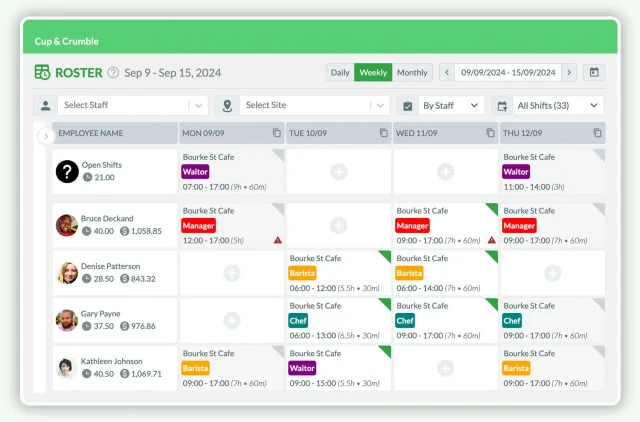- Ease of Use and Setup. RosterElf is widely recognised for its intuitive design and simplicity. The platform is built with business owners in mind, providing a clean, easy-to-navigate interface that makes rostering tasks quick and efficient. User reviews on the Xero App Store and Google frequently highlight how straightforward RosterElf is to set up and use, even for those who are not particularly tech-savvy. One standout feature is RosterElf’s drag-and-drop rostering tool, which allows managers to effortlessly move shifts between employees, ensuring optimal coverage while maintaining a fair distribution of work hours. This feature is particularly useful for businesses with dynamic scheduling needs, as it allows for real-time adjustments without any hassle. Deputy, on the other hand, offers a more robust set of features but with a steeper learning curve. While it provides extensive flexibility in terms of rostering, such as advanced break and overtime management, some users find it more complex to navigate compared to RosterElf. Businesses that require intricate, multi-layered scheduling may benefit from Deputy’s advanced capabilities, but it could feel overwhelming for smaller businesses or those looking for a simpler solution.
- Employee Availability and Shift Preferences. Both RosterElf and Deputy allow employees to set their availability and preferences, but RosterElf takes it a step further with its AI-powered Perfect Match System. This feature automatically recommends the most suitable employees for each shift based on availability, qualifications, and preferences, reducing manual intervention and ensuring that the best-fit staff members are assigned to each shift. Deputy also allows employees to update their availability and request shift swaps directly through the app. It excels in more granular shift management by offering features like break and overtime rules, which ensure that businesses remain compliant with labor laws. However, some users report that setting up these features can be time-consuming and may require more attention to detail.
- Roster Templates and Copying Shifts. A key feature of RosterElf is the ability to create and reuse rostering templates, making it easy to schedule recurring shifts or handle seasonal changes. Managers can copy and paste past rosters, apply pre-saved templates, and make adjustments as needed, speeding up the rostering process significantly. This feature is particularly valuable for businesses with predictable scheduling patterns, as it minimizes the need to build rosters from scratch. Deputy also allows for shift templates and copying previous rosters, but the process is slightly more involved due to its broader range of customisation options. While this can be beneficial for businesses that require more control over their scheduling, it may feel excessive for those looking for a more streamlined solution.
- Award Interpretation and Payroll Integration. Both platforms excel when it comes to award interpretation and integration with payroll systems like Xero and MYOB. However, RosterElf shines in its simplicity, with users frequently praising its award interpretation system for being easy to set up and maintain. The system ensures that wages are calculated correctly based on labor laws and award conditions, automating the process to reduce errors and save time.While Deputy offers comprehensive award interpretation features, it is often noted for being more complex to configure, particularly for businesses with unique or intricate award requirements. This makes Deputy a good fit for larger organizations that need granular control, but for businesses looking for a straightforward, easy-to-maintain system, RosterElf is often the better choice.
- Support and Training. RosterElf is well-known for its free setup, training, and ongoing support, which is often cited as a key benefit in user reviews. With real-time support from an Australian-based team, businesses appreciate the quick response times and personalized assistance, especially during the onboarding phase. Many users highlight the fact that they can speak to real people, not an overseas call center, when they need help.
Deputy offers global support, but businesses have occasionally reported longer response times and challenges with getting localized assistance. While Deputy provides extensive documentation and online resources, some users feel that the personal touch offered by RosterElf’s support team makes a significant difference in their experience.
Deputy, on the other hand, is better suited for businesses that require more advanced scheduling features, such as intricate break and overtime management, and have the capacity to navigate a more complex system. While it offers a wider range of customization options, it may require more time to set up and maintain.
In the end, the choice comes down to your business's specific needs. For businesses that prioritize ease of use, affordability, and top-notch local support, RosterElf stands out as the superior option.
Explore user reviews for RosterElf on Xero App Store and Google Reviews to see why so many businesses are choosing RosterElf for their rostering needs.
